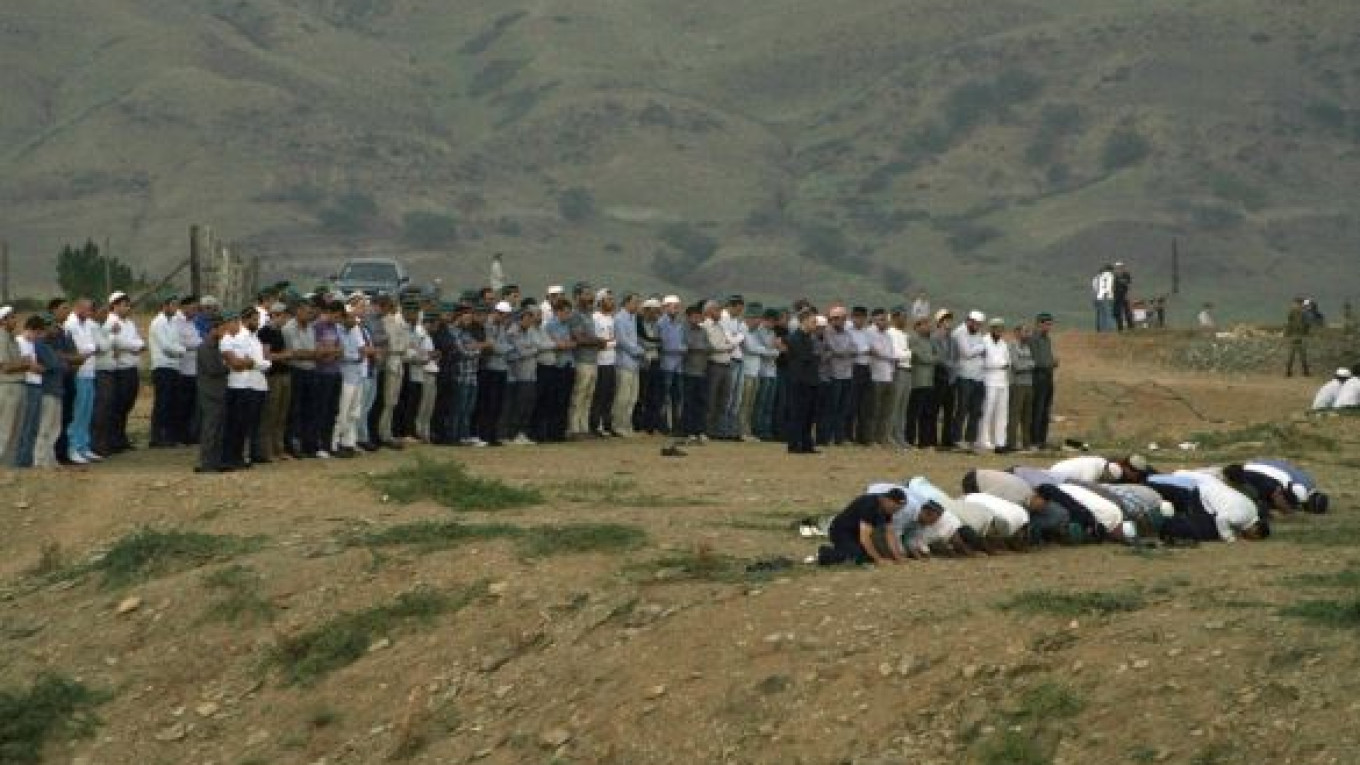An ethnic Russian woman, who was both wife and widow of Islamist militants, was named on Wednesday as the suicide bomber who killed a moderate Muslim cleric in Dagestan just as President Vladimir Putin was pleading for national unity.
Police said Aminat Kurbanova, a resident of Makhachkala, had posed as a pilgrim to the home of Said Atsayev, 74, in Chirkei and detonated an explosive belt packed with nails and ball bearings, killing Atsayev, herself and six others, including an 11-year-old boy visiting with his parents.
A security official said the woman, aged 29 or 30, was born with the ethnic Russian surname Saprykina but converted to Islam and was married to an Islamist militant. Two previous husbands, also militants, had been killed, the official added.
The bombing came as Putin made a rousing call for religious and ethnic concord to counter extremism.
"We will not allow anyone to tear our country apart by exploiting ethnic and religious differences," Putin said in Tatarstan, where the senior officially backed Muslim cleric was wounded last month and one of his former deputies killed.
Atsayev's killing follows a string of attacks on moderate Muslim leaders in the Caucasus who have publicly denounced the spread of radical Islamic groups known as Salafis, whose followers advocate an independent state, or emirate, that would include Caucasus and parts of southern Russia that contain a significant Muslim population.
Atsayev, the powerful leader of a Sufi Muslim brotherhood, had recently initiated peace talks between Sufis and Salafis.
The mystical Muslim orders of Sufis have for centuries been popular in Dagestan and neighboring provinces, and their leaders and adherents survived decades of Communist persecution. The Sufi brotherhoods are fiercely opposed to the radical and militant Salafis that have mushroomed across the region. The Sufis often pray over the tombs of revered saints, and Salafi puritans condemn worshipping over graves as idolatry.
Tens of thousands of people attended Atsayev's funeral Tuesday, and thousands more flocked to his grave Wednesday to pray as Dagestan's secular authorities declared a day of mourning.
The killing of the white-bearded cleric, who appeared in public wearing a traditional hat made of astrakhan lamb fur, could lead to more violence in Dagestan and the Caucasus, analysts said.
"These are attempts to abort peacekeeping efforts in the region and to escalate the situation in southern Russia," Ruslan Gereyev of the Center of Islamic Studies in Makhachkala, told the Kavkazsky Uzel online publication.
If the killing goes unpunished, the authority of Atsayev's influential followers will be questioned, said Alexei Malashenko of the Carnegie Moscow Center. "If the main figure is killed and his followers are silent, this will lead to a major reappraisal of values" in Dagestan, he said.
(Reuters, AP)
Related articles:
A Message from The Moscow Times:
Dear readers,
We are facing unprecedented challenges. Russia's Prosecutor General's Office has designated The Moscow Times as an "undesirable" organization, criminalizing our work and putting our staff at risk of prosecution. This follows our earlier unjust labeling as a "foreign agent."
These actions are direct attempts to silence independent journalism in Russia. The authorities claim our work "discredits the decisions of the Russian leadership." We see things differently: we strive to provide accurate, unbiased reporting on Russia.
We, the journalists of The Moscow Times, refuse to be silenced. But to continue our work, we need your help.
Your support, no matter how small, makes a world of difference. If you can, please support us monthly starting from just $2. It's quick to set up, and every contribution makes a significant impact.
By supporting The Moscow Times, you're defending open, independent journalism in the face of repression. Thank you for standing with us.
Remind me later.


